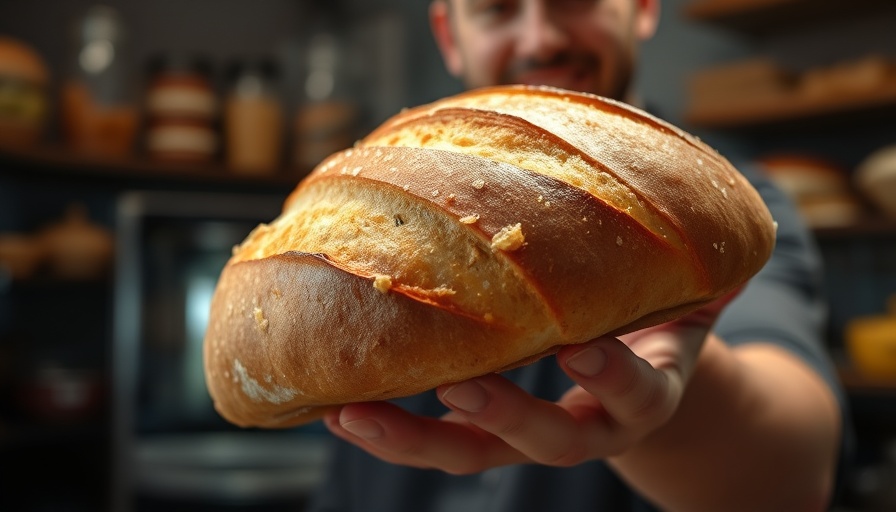
Why Pav Bread Matters to Mumbai's Identity
Pav bread is more than just a simple roll; it's a culinary icon steeped in history and socio-economic significance. For the bustling city of Mumbai, pav has been a staple of daily life, historically consumed by the working class. According to food anthropologist Kurush Dalal, it was the primary food for laborers in the 19th century who migrated to the city for work. This bread, with its soft crust and unique smoky flavor derived from traditional wood-fired ovens, embodies the essence of Mumbai—diverse, resilient, and deeply rooted in its culture.
Impending Changes and Their Impact on Tradition
The future of pav is under threat as the local government plans to phase out wood-fired baking methods to mitigate air pollution. This decision arises from a recent study by the Bombay Environmental Action Group, revealing that emissions from Mumbai's wood-fired bakeries equate to the health risks of smoking 400 cigarettes annually. While such initiatives aim to promote community health, they also threaten to erase flavors and traditions that many hold dear. A significant question arises: will the removal of these ovens lead to a bland rotation of pav that no longer captures Mumbai's unique culinary landscape?
Economic Implications of a Cultural Shift
The anticipated increase in production costs for pav, alongside potential price hikes from transitioning to gas or electric ovens, poses a significant risk for local bakeries. Currently priced at less than 25 cents for a stack of six—affordable for Mumbai's millions—the price adjustments could deprive lower-income residents of access to their favorite staple. This change highlights a growing intersection between health regulations and economic realities, as policymakers grapple with the implications for small businesses and cultural heritage.
The Broader Context of Food and Wellness
This situation brings to light the critical link between food, health, and community well-being. Recent studies in the field of wellness emphasize the importance of culturally significant foods in maintaining not just nutritional health but also mental health. As communities face increasing pressures from modern living, traditional foods like pav serve as a reminder of simpler times and shared cultural experiences. The loss of these foods might lead to a cultural disconnect, affecting overall community health and wellness.
Community Responses: A Call to Action
As Mumbai grapples with this looming shift, various stakeholders are urging the government to rethink its strategies. Activists emphasize the need for sustainable solutions that preserve both environmental integrity and local traditions. Advocating for cleaner technologies that can work in harmony with traditional baking practices could be a potential path forward. Investments in health and wellness technology, for instance, might provide alternative baking methods that reduce emissions without sacrificing beloved culinary practices.
Final Thoughts: Balancing Tradition and Progress
Mumbai's pav bread crisis exemplifies a common modern dilemma—how to balance public health with cultural preservation. As we urge local authorities to reconsider their approach, let us also reflect on our roles as consumers. Supporting small bakeries, advocating for community health initiatives, and being mindful about the cultural implications of our food choices can influence how traditions evolve in this fast-changing world.
 Add Row
Add Row  Add
Add 




 Add Row
Add Row  Add
Add 

Write A Comment